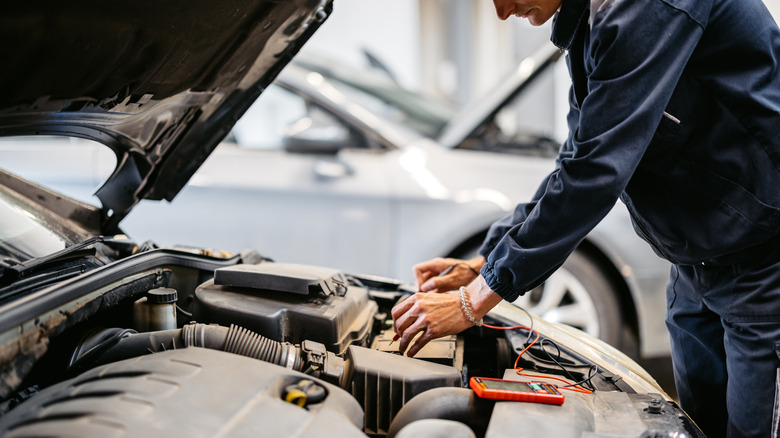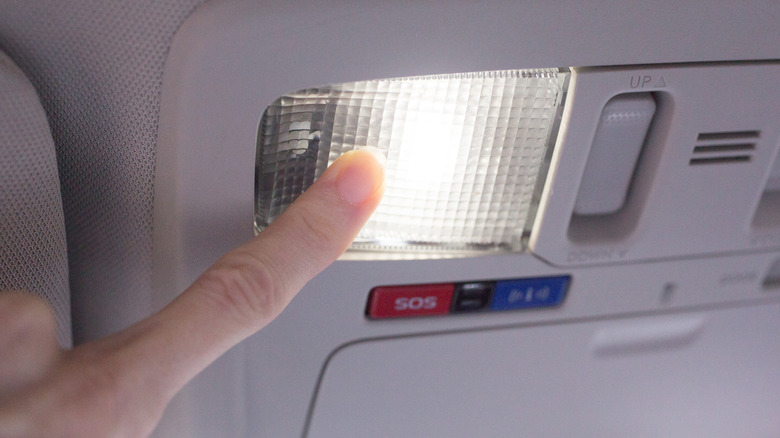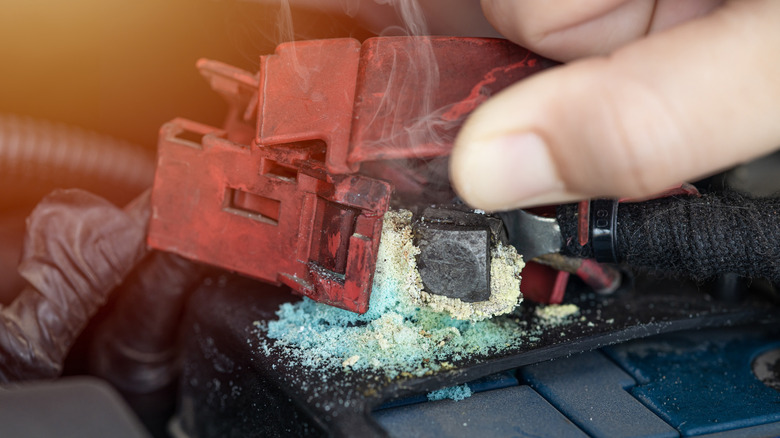
Your car's battery might not be something you think about daily, but it plays a huge role in ensuring everything runs smoothly. Without it, you're not going anywhere. It powers almost everything in your
car, including the lights, windows, radio, and more. However, like anything else, car batteries don't last forever. However, with a little care and attention, you can help your battery last much longer than expected.
Most batteries have a lifespan of around three to four years, but that can change depending on how you use your car. Things like hot weather, short drives, or forgetting to turn off the lights can slowly wear your battery down. When it starts to go bad, you might notice your car takes longer to start, or the lights seem dimmer. After a while, you'll be stuck with a dead battery, and this can happen at the worst possible time.
Luckily, most battery problems can be avoided with just a few simple habits. You don't need to be a mechanic or carry a bunch of tools, as just a bit of regular maintenance and smarter driving habits can make a big difference.
In this article, we'll go over five easy tips to help you keep your car battery in good shape and improve its lifespan. These tips aren't complicated, but they can save you from the stress of unexpected breakdowns or paying for a new battery sooner than you should.
Read more: 6 Ways To Use Your Car's Tow Hitch (Besides Towing)
Drive Your Car Regularly

One of the easiest ways to take care of your car battery is to simply drive it regularly. Yes, it sounds simple, but it can do more good than you realize. If your vehicle sits for too long without being used, the battery slowly loses its charge. Over time, that can leave you with a dead battery that won't start the engine at all. In fact, long periods of disuse can lead to other problems as well, like fuel going bad and fluids breaking down.
Driving your car regularly helps keep all its systems running smoothly. The battery gets a chance to recharge, and the engine oil and other fluids move around to keep parts from wearing out. If your car just sits in one spot for weeks without being started, it can cause problems. The battery slowly loses power, and the parts inside the engine don't stay properly protected.
If you cannot drive your car every day, try to take it out for a short drive every week or two. A quick 30 to 60-minute highway drive is enough to help the battery recharge and warm the engine up. It also helps keep all the fluids moving and prevents parts from sitting idle for too long.
If you're not planning to drive your car for a while, like when you're on vacation, it's a good idea to disconnect the battery and store it in a cool, dry place.
Turn Off All Lights And Electronics After The Engine Is Off

Leaving your car's lights or electronics on after shutting off the engine might seem like a small mistake, but it can completely drain your battery overnight. If you've ever walked out to a dead car in the morning, there's a good chance something was left on, like your headlights or dome lights.
When your engine is on, the alternator keeps the battery charged and powers everything in the car. Once you turn the engine off, the battery is on its own. If you leave any lights or electronics on, even by mistake, they'll keep using power until the battery is drained. Headlights especially use a lot of power, so leaving them on for just a few hours can be enough to kill the battery.
Some newer cars will turn off the lights by themselves, but not all cars have that feature. Older models or cars with manual switches might keep the lights on even after you've left. That's why it's a good habit to quickly check that everything is turned off before you walk away. It only takes a second and can save you from a dead battery later. Draining your car battery one time probably won't ruin it, but doing it repeatedly will wear it out faster.
Park Your Car Under The Shade In Hot Weather

Hot weather can slowly damage your car battery without you even noticing. While many people think cold weather kills batteries, the real trouble usually begins in the summer. High temperatures speed up how fast the battery's internal chemicals break down. Heat also causes the fluid inside the battery to evaporate, which weakens the battery over time.
One easy way to protect your car battery is to keep your car out of direct sunlight. When your car sits under the hot sun, especially for a long time, the temperature under the hood rises quickly. That heat puts extra stress on the battery and other nearby parts. If your battery gets too hot too often, it can start showing signs of trouble. You might notice the engine takes longer to start, the lights seem dim, or a battery warning light shows up on the dashboard.
Parking in the shade, like under a tree, near a building, or inside a garage, helps eliminate this problem and reduces the stress on the battery. If you can't park in the shade or use a garage, a good car cover can still help. It acts like a shield, blocking heat and harmful UV rays from the sun. Just ensure your car is cool and dry before putting the cover on.
Keep The Battery Terminals Clean

Your car's battery can't do its job properly if the connections are dirty or corroded. That's why keeping the battery terminals clean is such an important part of basic car maintenance. It's one of those simple things that can prevent a lot of problems before they start.
Battery terminals are the metal points where your car's cables connect to the battery. Over time, these spots can get covered in a powdery buildup which is usually white or blue in color. This is called corrosion, and it happens because of heat, moisture, and chemical reactions inside the battery. Even though it might look small, that buildup can stop electricity from flowing properly. If the connection gets too weak, your battery may have a hard time starting the car or might not start it at all.
The good news is that cleaning your battery terminals is pretty simple. You don't need any fancy tools, as it can be done with just a pair of gloves, a wire brush, and a mix of baking soda and water. Start by disconnecting the battery, and always remove the negative cable first. Then dip the brush into the baking soda solution and scrub the terminals until the corrosion is gone. Once they're clean, rinse them with a bit of water and dry them off completely. Finally, reconnect the cables, but this time, start with the positive one.
Avoid Frequent Short Trips

Short trips might feel convenient, but if you make them often, they can slowly drain your car battery. That's because starting your car takes a lot of power from the battery. After that, the alternator's job is to recharge it while you drive. If you only drive for a few minutes, the alternator doesn't get enough time to recharge the battery. What does this lead to? A weaker battery that doesn't last as long as it should.
If most of your driving is just short trips, like running errands or going to college, that's pretty common. Those short drives don't give your battery enough time to recharge properly. To help your battery stay healthy, take your car for a longer drive at least once a week, ideally for about an hour.
Another simple way to keep your battery healthy is by using a battery maintainer. This small device slowly charges the battery and helps it stay full when the car isn't driven often. It's great for people working from home or having a second car in the garage for weeks or months. Also, try to avoid using too many electronics during short drives. Features like the heater, AC, or stereo pull extra power, making it even harder for the battery to recover.
Want the latest in tech and auto trends? Subscribe to our free newsletter for the latest headlines, expert guides, and how-to tips, one email at a time.
Read the original article on SlashGear.












